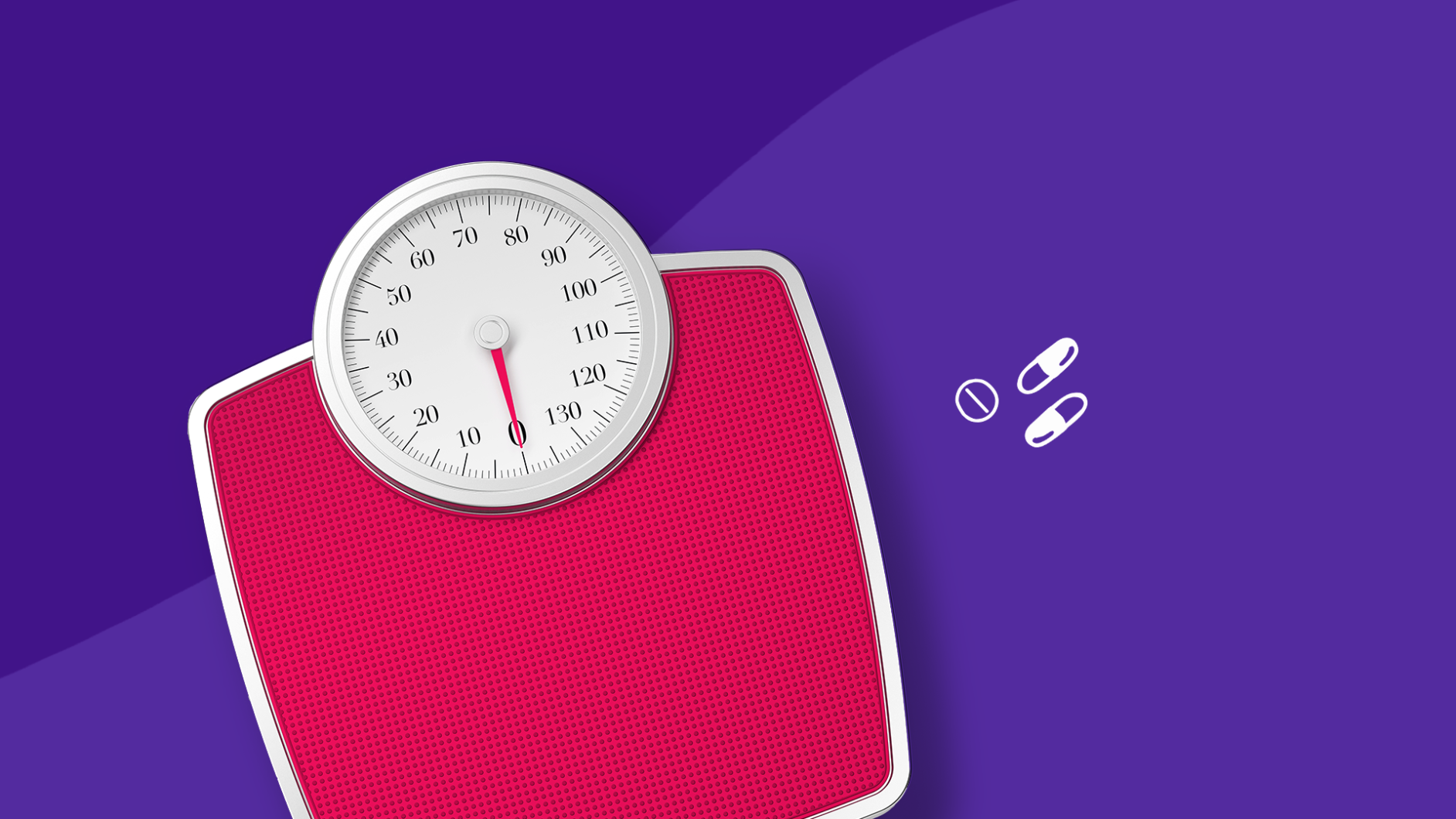Unwanted weight gain is often alarming, but when a necessary medication is the cause of those extra pounds, it can be confusing and frustrating. Dozens of medications, including antidepressants, antihistamines, mood stabilizers, beta-blockers, and anti-diabetic medications can cause weight gain. It happens for a host of reasons, including increased appetite, increased insulin resistance and slowed metabolism. Knowing the medications that cause weight gain—and how they do so—puts you on track to counteract adverse effects.
How do medications cause weight gain?
Most medications that cause weight gain are orexigenic, meaning they stimulate the appetite and increase food consumption. “However, in patients who are experiencing loss of appetite from a variety of medical reasons or old age, this effect can be beneficial for promoting appetite increase and weight gain,” says Karen Cooper, DO, the director of weight management at the Cleveland Clinic.
Other medications, such as steroids, lead to changes in metabolism and appetite, while anti-diabetic medications affect insulin resistance. Antidepressants, antipsychotics, and other drugs used for mental health can lead to weight changes in different ways, depending on the medication.
What medications cause weight gain?
This list of medications that cause weight gain can help you determine whether an increase in weight is associated with medication:
- Anti-diabetic medications such as insulin and sulfonylureas (Glynase, Amaryl, Glucotrol, etc.)
- Antidepressants, including commonly prescribed selective serotonin reuptake inhibitors (SSRIs) such as Prozac, Zoloft, and Paxil
- Anti-epileptic medications such as Neurontin, Depakene, and Tegretol
- Antihistamines such as Allegra and Zyrtec
- Antihypertensives and beta-blockers such as Inderal and Lopressor
- Antipsychotics such as Zyprexa, Risperdal, and Latuda
- Corticosteroids such as Decadron, Prednisone, and Cortef
- Mood stabilizers such as Lithobid
How can you tell if a medication is causing weight gain?
Joshua Septimus, MD, associate professor of clinical medicine at Houston Methodist Hospital, has a three-step process to determine whether a medication is the cause of unwanted weight gain:
- First, look at the timing of the weight gain. If the weight gain happened shortly after starting the new drug, that’s a strong indicator.
- Also look to make sure that you haven’t changed your lifestyle or dietary habits since starting a new medication. Keeping a log of food and exercise can help you spot any differences.
- Make sure you don’t have any other signs of medical conditions that might trigger weight gain. (A physical exam can help with this.) Weight gain is often a situation you need to be holistic about, so look at your history and any changing social dynamics or habits.
How to counteract medication weight gain
If a medication is causing unwanted weight gain, you should ask your doctor whether there are alternatives to treat the medical condition or medication that can offset the weight gain. Be prepared: Some of the most common medications that trigger weight gain are medications that are being used for life-saving purposes, which can make the use of alternatives difficult.
If you’re taking a medication that commonly leads to weight gain, it’s important to focus on exercising regularly—and including strength training. “One of the most common mistakes that patients make is that they don’t lift weights because they’re afraid they’re going to ‘bulk up,’” Dr. Septimus says. “When in fact, one of the most important things you can do to continue maintaining your metabolism is to lift weights and maintain your muscle mass.”
It’s also important to avoid the foods that are known for driving down metabolism if you’re experiencing weight gain due to a medication. Limit refined and processed foods, including sugar and processed carbohydrates.
Talk to your doctor
Never stop a medication without talking to your doctor, as doing so can have significant health consequences. There may be reasonable alternatives even if you need medication for a particular condition or ways to counteract weight gain from a medication, so the best way to get to the bottom of suspected medication weight gain is by acting as your own health advocate and asking questions.











